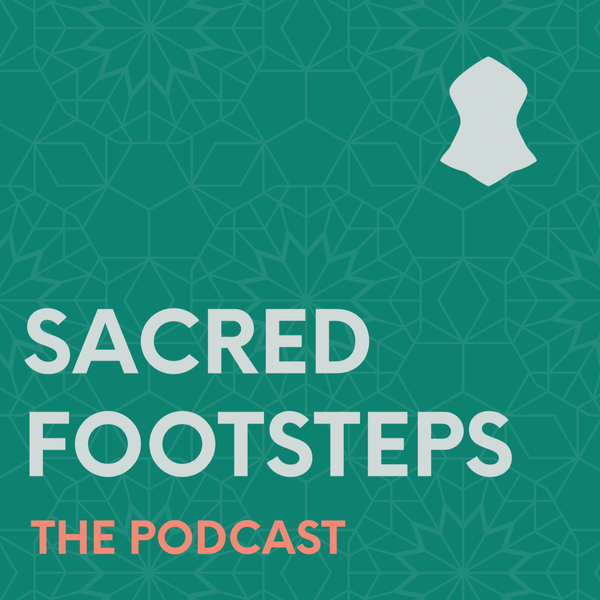
Sacred Footsteps - The Podcast
Sacred Footsteps
Travel, history and culture from a Muslim perspective
- 56 minutes 48 secondsThe Reintroduction of Metaphysics | Muḥiyuddīn Al-ʿAṭṭās
A discussion on the need to reintroduce metaphysics based upon the Islamic conception of reality and truth, a prominent theme found in the works of Professor Syed Naquib al-Attas. With Zain al-Haddad and Syed Muḥiyuddīn al-Attas.
20 January 2025, 3:03 pm - 1 hour 6 minutesIslam in the Malay World | Muḥiyuddīn Al-ʿAṭṭās
Islam arrived in the Malay world through “good word” and quickly established itself though various kingdoms that would later become centres of learning. Zain al-Haddad speaks to Syed Muḥiyuddīn Al-ʿAṭṭās about the major Muslim figures in the Malay world and the development of an indigenous Islamic scholarship which was nevertheless rooted in networks of authenticated scholarly chains across the centuries.
15 October 2024, 11:45 am - 46 minutes 41 secondsThe Eradication of Islamic Epistemology | Prof Joseph Lumbard
The Islamic sciences were once rooted in an underlying epistemic unity, that existed among all fields of the knowledge in the Islamic world. Zara talks to Professor Joseph Lumbard about his paper Islam and the Challenge of Epistemic Sovereignty. They discuss: the eradication of the Islamic epistemic framework, the adoption of modern secular-epistemic models, and the complicity of some Muslim academics in this. Professor Lumbard also explains the need to reinstate the position of tasawuf (purification of the soul) in Islamic intellectual discourse.
30 June 2024, 11:20 am - 38 minutes 19 secondsCape Town's Circle of Saints
On the hills in and around Cape Town, you will find 300 year old Muslim graves belonging to notable individuals who arrived on the southern tip of the African continent in chains, as slaves or political prisoners of colonisers. They brought nothing with them, except faith in their hearts and the remembrance of God on their tongues.
This is the story of the beautiful melodic tones of Cape Town dhikr and why it has such a unique sound. Spanning centuries and continents, it is a story of imprisonment and enslavement, colonialism and resistance; of sufi tariqahs, scholars and princes. It is a story of hardship, courage and perseverance, but above all, of faith in God.
Written and hosted by Zara Choudhary
11 January 2023, 10:59 pm - 35 minutes 3 secondsIslam in Australia: Makassan Traders, Afghan Cameleers & a Sufi Qadiri Connection
Zara talks to Dr Abu Bakr Sirajuddin Cook and Dr Rami Dawood about the history of Islam in Australia- beginning with the arrival of the Makassan traders, that pre-dates European settlement, to the Afghan Cameleers, who set up the first mosques in the country. They discuss the legacy of the early Muslims in the country, their interaction with Aboriginal tribes, and the discovery of a Sufi Qadiri manuscript in Broken Hill Mosque.
29 November 2021, 5:45 pm - 47 minutes 14 secondsHow Islamic Architecture Shaped Europe | Diana Darke
Zara talks to author and Arabist Diana Darke about her most recent book Stealing From The Saracens: How Islamic Architecture Shaped Europe. Diana explains how cultural exchanges between Europe and Islamic Syria shaped Gothic architecture, and why this has become a point of controversy in Europe today.
24 April 2021, 11:15 am - 17 minutes 2 secondsMy Ancestral Past: Visiting the Gilanis in Iran
Sana Gillani visits the tombs of her ancestors: the parents of the influential scholar and saint, Shaykh Abdul Qadir al-Gilani, in Iran.
31 March 2021, 2:14 pm - 16 minutes 17 secondsDivine Love & Sufi Poetry of Punjab
Abdullah Sattar explores the roots of Sufism in Punjab, which spread, in large part, through the words of poets that are still recited and resonate today.
26 February 2021, 2:14 pm - 15 minutes 1 secondLessons From Life on the Road
Alex Reynolds from lostwithpurpose shares her experiences/conclusions/insights from more than four years of full time travel.
30 January 2021, 10:08 pm - 9 minutesAdam's Peak: In Search of a ProphetSacred Footsteps presents, Khayal Diaries, a series of personal accounts, narratives and critical reflections on topics like Islamic history, culture and travel.
Zara Choudhary revisits her journey to Adam’s Peak, a mountain in Sri Lanka visited by Muslims, Buddhists, Hindus and Christians for its association with several religious figures, including the Prophet Adam.
28 November 2020, 12:58 pm - 1 hour 5 minutesQawwali
Omar, Yasmine and Shahroze discuss the history, evolution and spiritual significance of qawwali. Qawwali incorporates music, poetry and story-telling in to a celebration of Love. The singing of qawwali in Sufi shrines and mausoleums is a practice of samaa, a devotional practice that involves singing, dancing, playing musical instruments, praying, reciting poetry and participating in rituals in order to achieve a higher spiritual state.
3 July 2020, 9:40 pm - More Episodes? Get the App